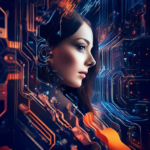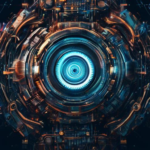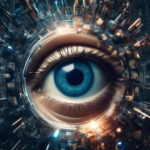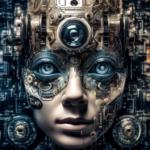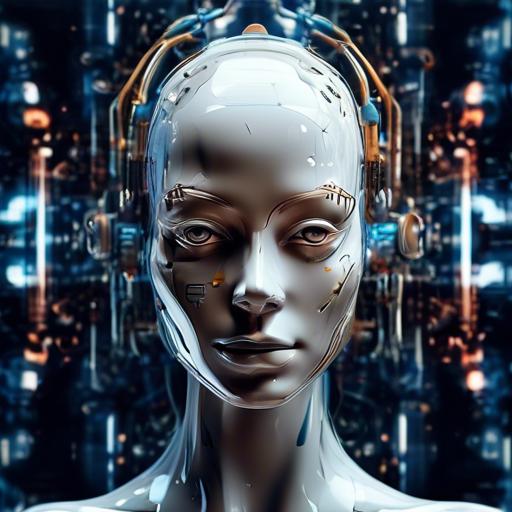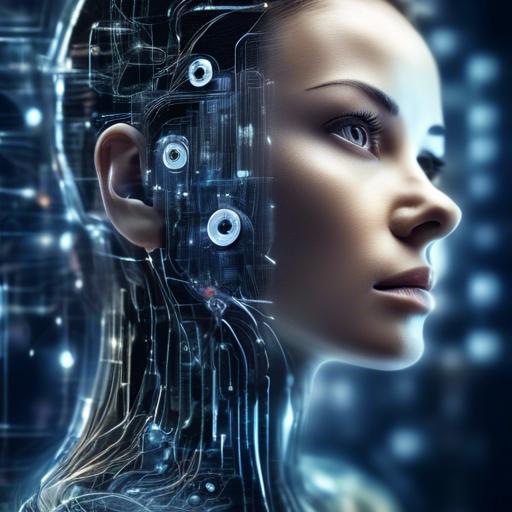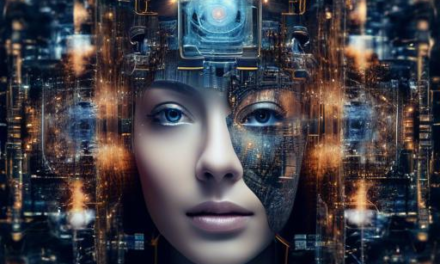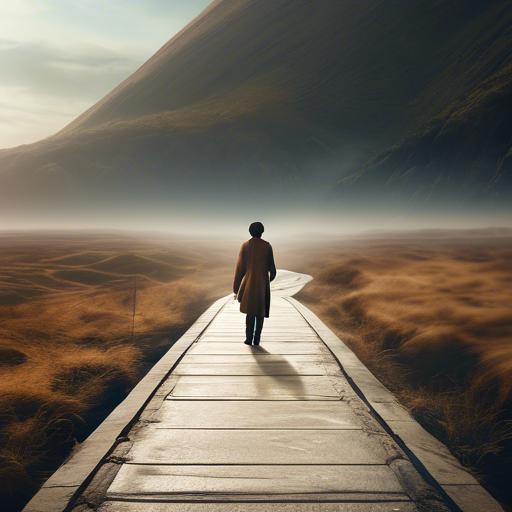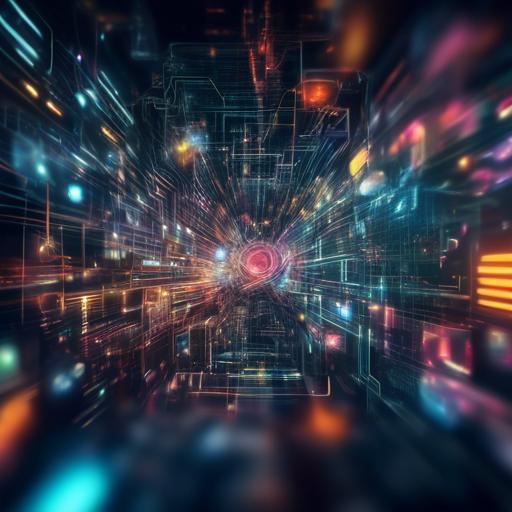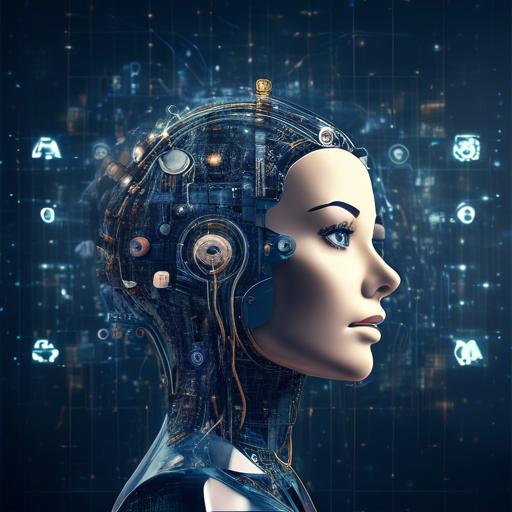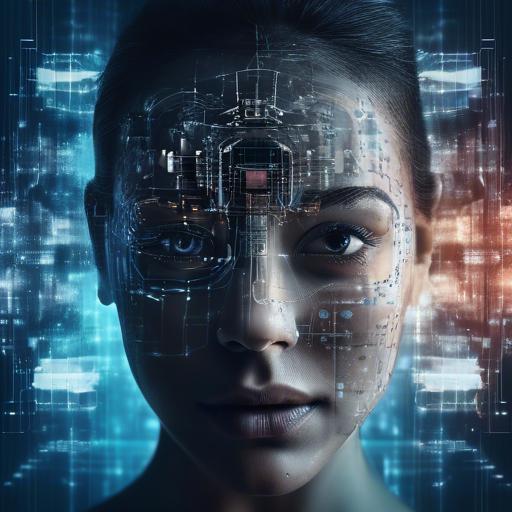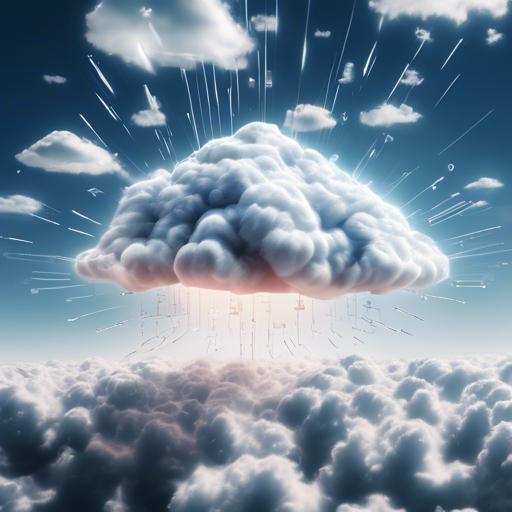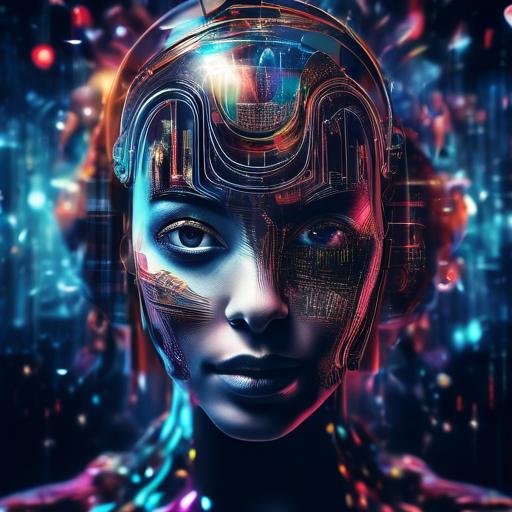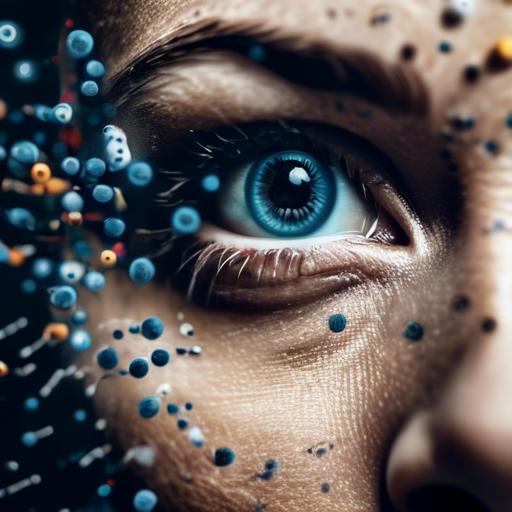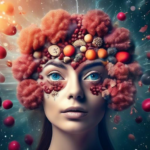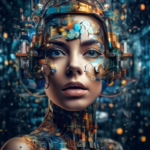Imagine a world where every artist and designer is accompanied by a digital muse, an ever-present companion that sparks creativity, streamlines processes, and brings dreams to life with the mere touch of a button. This isn’t a scene from a far-off, futuristic utopia; it’s the reality we’re living in today. is a testament to how far technology has come in nurturing human creativity. From the rudimentary algorithms that once could barely sketch a line to the sophisticated systems now capable of conjuring masterpieces, AI has transformed the artistic and design landscapes.
In this supportive journey through past and present, we celebrate the myriad ways artificial intelligence has empowered creators, enhancing artistic expression and breaking down barriers. As we traverse this vibrant timeline, let’s dive into the innovations that have redefined the very essence of creativity, inspiring artists and designers to soar to new heights. Whether you’re a seasoned professional or an aspiring novice, the evolution of AI tools underpins a remarkable story of synergy between human ingenuity and advanced technology. So, fasten your seatbelt and prepare to explore how these digital marvels have revolutionized the world of art and design, making the impossible possible and the ordinary extraordinary.
Table of Contents
- The Dawn of Digital Creativity
- Tracing the Journey: From Early Software to Modern Masterpieces
- Harnessing Machine Learning: Empowering Artistic Potential
- Generative Art: When AI Meets Imagination
- Streamlining Design Processes: Efficiency Through Innovation
- AI in Visual Storytelling: Crafting Narratives with Technology
- Balancing Act: AI Assistance vs. Creative Control
- Future Horizons: Emerging Trends and Technologies
- Guiding Your Creative Path: Best AI Tools to Use Today
- Concluding Remarks
The Dawn of Digital Creativity
The rise of AI tools has transformed the landscape of artistic expression, empowering artists and designers with unprecedented capabilities. With cutting-edge algorithms and machine learning models, creators are no longer shackled by the limitations of manual processes. Instead, they are gifted with the speed, precision, and boundless imagination that digital tools bring.
One significant evolution is the introduction of AI-powered image generation. Tools like **DeepArt** and **DALL-E** allow creators to generate unique artwork from simple textual descriptions or reference images. These tools meticulously analyze patterns, colors, and compositions, ensuring that each piece retains the artist’s original intent while introducing novel aesthetic elements.
- Speed: Instant rendering of complex ideas
- Precision: Enhanced accuracy in details
- Exploration: Endless variations and styles
Moreover, AI has democratized the world of design. No longer the realm of only those with traditional training, design tasks like logo creation, layout arrangement, and even character design have become accessible to wider audiences. Programs like **Canva** and **Crello** surmount the learning curve, providing templates and AI-suggested modifications that simplify the design process.
| Tool | Use Case | Benefit |
|---|---|---|
| DeepArt | Image Transformation | Artistic filters and styles |
| DALL-E | Image Generation | Original artwork from text |
| Canva | Graphic Design | User-friendly templates |
The symbiosis of human creativity and AI’s computational prowess heralds a new era for the art and design community. Bold ideas that once seemed unattainable are now within reach, allowing artists and designers to push the boundaries of their craft and explore new frontiers with confidence and flair.
Tracing the Journey: From Early Software to Modern Masterpieces
Dive into the past, when artists and designers relied on rudimentary software, with limited functionality and a steep learning curve. The early days of graphic design software were marked by tools like MS Paint and the first versions of Adobe Photoshop. These pioneers opened doors, yet posed challenges, forcing creatives to spend countless hours perfecting their digital masterpieces.
Fast forward to today and the landscape has vastly transformed. Modern AI tools have redefined the boundaries of creativity, providing artists with an expansive suite of features designed to enhance their vision. Tools such as Adobe Creative Cloud and Procreate now integrate AI-driven features, enabling faster, more intuitive creation.
| Feature | Early Software | Modern AI Tools |
|---|---|---|
| Color Selection | Manual | AI-Powered Palettes |
| Brush Strokes | Basic | Dynamic and Responsive |
| Image Adjustments | Hand-Tuned | Automated & Predictive |
More than just tools, these AI-enhanced platforms act as co-creators, suggesting improvements and providing templates that push the boundaries of imagination. For instance, platforms like DeepArt and Artomatix offer style transfer capabilities, transforming simple sketches into works of art reminiscent of Van Gogh or Picasso with a click.
- Increased efficiency: Quickly produce high-quality visuals without extensive manual input.
- Enhanced creativity: Explore new styles and techniques supported by AI suggestions.
- Accessibility: Make sophisticated design techniques available to novices and experts alike.
From the crude beginnings of digital art software to today’s intelligent co-creators, the evolution of AI has been nothing short of revolutionary for artists and designers. Today’s tools not only save time but expand the creative horizon, offering endless possibilities for expression and innovation.
Harnessing Machine Learning: Empowering Artistic Potential
In recent years, machine learning has transformed from a novel concept into a powerful ally for artists and designers. This technology isn’t just a tool—it’s a catalyst that pushes the boundaries of creativity, offering new possibilities and redefining what’s attainable in the world of art and design.
Customized Style Transfer:
Imagine being able to blend the essence of Van Gogh with your unique touch. Machine learning enables highly customized style transfers, allowing creators to meld multiple styles seamlessly. This paves the way for truly original works that carry complex layers of influence.
Generative Design:
This technique utilizes algorithms to generate thousands of design solutions based on specified parameters, letting artists explore a plethora of options effortlessly. From logos to intricate patterns, the power to scale creativity has never been more accessible.
With the aid of machine learning, tools can now predict and augment your design process. Here are some capabilities that empower today’s artists:
- Enhanced Color Palettes: AI suggests sophisticated color schemes based on your initial choices.
- Smart Composition: Algorithms offer layout improvements, ensuring balanced visual aesthetics.
- Image Upscaling: Improve resolution without losing quality, perfect for detailed artwork.
| Feature | Benefit |
|---|---|
| AI Sketch Assistance | Instant refinement of hand-drawn sketches |
| Pattern Recognition | Increases accuracy in replicating intricate designs |
| 3D Model Generation | Transforms 2D drawings into detailed 3D models |
Machine learning is not just making waves; it’s fundamentally reshaping the creative process, offering unprecedented tools and resources for artists and designers. This synergy between technology and artistry doesn’t merely refine the craft—it amplifies the potential for innovation, making the impossible, possible.
Generative Art: When AI Meets Imagination
Imagine a canvas where the brushstrokes are algorithms and the color palettes are data points. In the world of generative art, this is not just a fictional idea but a vibrant reality. **AI-powered tools** are transforming art and design by offering artists and designers new dimensions to explore. These tools blend human intuition with machine precision, creating pieces that are not only aesthetically captivating but also evoke new emotional resonances.
Artists and designers can now utilize an array of AI tools to enhance or even originate their creations. Some of the most remarkable AI tools include:
- **DeepArt** – Transforming photos into artworks in the style of famous painters.
- **RunwayML** – Providing a platform for various AI models that aid in creative processes.
- **Artbreeder** – Allowing the combination and tweaking of images to create unique new ones.
- **DALL-E** – Generating detailed images from textual descriptions.
| Tool | Primary Use | Unique Feature |
|---|---|---|
| DeepArt | Photo to Art Conversion | Styles of Famous Painters |
| RunwayML | Creative AI Models | Wide Range of Models |
| Artbreeder | Image Blending | Image Tweakability |
| DALL-E | Text to Image | Detailed & Complex Visuals |
AI’s role in art and design extends beyond just creating images. It’s about **collaboration**. These tools are enabling artists to push the boundaries of creativity, allowing for more experimentation without the fear of failure. For instance, **generative adversarial networks (GANs)** can generate numerous iterations of a concept, offering diverse perspectives that might not have been considered in traditional methods.
Moreover, the infusion of AI into artistic workflows is democratizing the creative process. Previously, certain artistic techniques required years of training or unaffordable resources. Now, anyone with access to these tools can create professional-grade art. This **democratization is fostering a more inclusive creative community** where talent is amplified by technology, and the lines between novice and expert are increasingly blurred.
Streamlining Design Processes: Efficiency Through Innovation
In recent years, the integration of AI into design workflows has fundamentally transformed how artists and designers approach their creative processes. No longer tethered to time-consuming tasks, these innovative tools offer remarkable efficiency that allows professionals to focus on what they do best: creating stunning visuals and compelling narratives. The key lies in their ability to **automate repetitive tasks** and **provide intelligent suggestions** that enhance creative output.
Let’s explore the multitude of ways AI is being harnessed to streamline design processes:
- Automated Concept Generation: AI tools like Artbreeder and DALL-E can spontaneously generate concept art and designs based on simple inputs, providing a wealth of starting points for artists.
- Enhanced Image Editing: Machine learning algorithms in software such as Adobe Photoshop and Affinity Photo automatically adjust lighting, color balance, and even remove unwanted elements, saving countless hours of manual tweaking.
- Smart Prototyping: Applications like Figma and Sketch integrate AI to predict and propose design elements, streamlining the prototyping phase and cultivating more cohesive design systems.
AI also dramatically improves collaboration within design teams. Tools like Miro or Asana use AI to facilitate project management by **tracking progress, organizing tasks, and even predicting project timelines.** This reduces administrative burdens and allows team members to concentrate on deliverables.
One of the most exciting applications is in the field of **user experience (UX) design.** AI-driven analytics tools assess user interactions, offering insights and recommendations to optimize designs for better usability and engagement. This not only enhances the user experience but also aligns with business goals by boosting conversions and customer satisfaction.
| AI Tool | Primary Use | Benefit |
|---|---|---|
| Artbreeder | Concept Art Generation | Inspires Creativity |
| Photoshop | Image Editing | Saves Time |
| Figma | Smart Prototyping | Improves Cohesion |
Ultimately, AI tools are not just enhancing efficiency but also opening up novel avenues for innovation. By automating mundane tasks and providing intelligent insights, these technologies free designers to push creative boundaries, experiment with new ideas, and bring their visions to life more effectively than ever before.
AI in Visual Storytelling: Crafting Narratives with Technology
For centuries, artists and designers have been wielding their imagination and tools to tell stories through the canvas, sculptures, and graphics. Today, with the advancement of AI, the capabilities of visual storytelling have taken a quantum leap, enabling unprecedented creativity and precision.
**AI-powered tools** are revolutionizing how narratives are crafted. Here are a few groundbreaking technologies making waves in visual storytelling:
- **Generative Adversarial Networks (GANs):** These algorithms can create stunningly realistic images and artwork by training on vast datasets, allowing artists to generate unique pieces with just a few clicks.
- **Neural Style Transfer:** This technique allows creators to apply the style of one image to another. Imagine turning a simple photograph into a masterpiece that mimics Van Gogh’s distinct brushstrokes!
- **AI Art Assistants:** These smart assistants can suggest compositions, color palettes, and even identify potential flaws, acting as an ever-present collaborator that boosts productivity and creativity.
Below is a quick comparison highlighting the key features of some popular AI tools for visual storytelling:
| Tool | Main Feature | Use Case |
|---|---|---|
| DeepDream | Image generation with artistic styles | Generating surreal images |
| RunwayML | Real-time collaboration on creative projects | Interactive installations |
| Artbreeder | Combining and remixing images | Character design |
These transformative tools not only enhance the efficiency and scope of an artist’s work but also enable deeper emotional connections and richer experiences for audiences. As AI continues to evolve, the possibilities for crafting compelling narratives will only expand, inviting both seasoned and budding artists to venture into uncharted creative territories.
Balancing Act: AI Assistance vs. Creative Control
When wielding the power of AI tools, artists and designers encounter a fascinating dance between leveraging innovative assistance and maintaining their unique creative vision. AI technology can mimic styles, suggest enhancements, and handle tedious tasks, but finding the perfect balance is key to preserving artistic integrity.
Artists must navigate how much control to cede to AI. Too much reliance on automation can risk diluting the original voice, while too little can mean missing out on efficiency gains. Here’s a glimpse into the two forces at play:
- AI Assistance: Provides endless design suggestions, automates colorization, refines shapes, and can even complete scenes or portraits.
- Creative Control: Ensures the final product stays true to the artist’s vision, maintains originality, and reflects personal flair.
Consider these common scenarios:
| AI Contribution | Creative Input Required |
|---|---|
| Generating a series of design options based on input criteria | Selecting and tweaking the final design to match the project vision |
| Instantly cleaning up and enhancing digital sketches | Adding personalized nuances and unique elements |
| Predicting trends and suggesting concepts | Deciding which trends align with brand identity and style |
Ultimately, the harmonious integration of AI tools can augment but not overshadow the human element. This balanced approach empowers designers to use advanced resources without compromising their inherent creativity. It’s a collaborative synergy that can lead to unexpected innovation and breathtaking art, combining the best of both worlds.
Future Horizons: Emerging Trends and Technologies
The digital realm is transforming at a breakneck speed, and at the forefront of this transformation are powerful **AI tools** designed to elevate the work of artists and designers. These innovations aren’t just about simplifying tasks; they’re about expanding the creative horizon, offering new avenues and methods for artistic expression that would have been unimaginable a few years ago.
One of the profound breakthroughs includes AI engines that generate art with striking precision. Programs like **DALL-E**, **MidJourney**, and **DeepArt** have the capability to create intricate designs and artwork based on simple text prompts. This democratization of creativity ensures that even those without conventional art training can produce compelling visuals, bridging the gap between imagination and execution.
- Integration with design software like Adobe Creative Cloud
- AI-driven color palettes and composition suggestions
- Smart enhancements based on historical style analysis
- Collaborative tools for real-time co-creation
| AI Tool | Key Feature |
|---|---|
| DALL-E | Text-to-Image Generation |
| MidJourney | Style Transfer |
| DeepArt | Neural Network Creativity |
Additionally, the collaborative aspect of these tools is nothing short of remarkable. Designers from different parts of the globe can now co-create in real-time, thanks to platforms that allow shared visual workspaces. These spaces are enhanced by AI that can suggest improvements or alternatives, learning from the styles and preferences of each contributor.
Looking ahead, we can expect these tools to become even more intuitive and personalized. **Emotion recognition**, **style mimicry**, and **predictive analytics** will play significant roles, enabling AI to not only understand and predict current trends but also to inspire and innovate autonomously. The canvas of the future is digital, intelligent, and boundlessly creative.
Guiding Your Creative Path: Best AI Tools to Use Today
In the ever-expanding realm of digital creativity, AI tools have become indispensible allies for artists and designers. These tools don’t just refine your workflow; they unlock avenues for expression previously unimaginable. Dive in to discover some of today’s most trailblazing AI technologies that can amplify your artistic prowess.
DALL-E and the Art of Imaginative Illustration
OpenAI’s DALL-E is a phenomenal tool that transforms text prompts into vibrant, surreal images. Whether you’re sketching fantasy landscapes or designing whimsical characters, DALL-E pushes the boundaries of what’s possible by materializing even the most abstract concepts. Armed with this technology, your creative potential is virtually limitless.
DeepDream: Hallucinatory Patterns and Textures
Google’s DeepDream offers an extraordinary approach to enhancing your art with intricate, dream-like patterns. This AI tool utilizes neural networks to generate mesmerizing imagery, making it ideal for artists looking to infuse their work with a touch of surrealism. DeepDream doesn’t just alter your artwork—it reshapes your perspective on creative possibilities.
RunwayML: Your All-in-One AI Studio
RunwayML is an all-encompassing platform designed to democratize machine learning for artists and designers. From video editing to dynamic GANs (Generative Adversarial Networks), this tool provides a myriad of creative applications, all from a user-friendly interface.
- **Style Transfer**: Apply the aesthetic of one image to another.
- **Green Screen AI**: Remove or replace backgrounds in videos effortlessly.
- **Generative Design**: Generate unique forms and patterns on command.
| Tool | Best For | Key Feature |
|---|---|---|
| DALL-E | Illustrations | Text-to-Image |
| DeepDream | Textures | Neural Patterns |
| RunwayML | Variety | Multi-Utility |
Artbreeder: Collaborative Creations
If your envisioning combines aspects of multiple artworks, Artbreeder provides the collaborative platform you need. This innovative tool lets you blend and evolve images using AI, fostering a community of co-creators who can collectively push the envelope in digital art. The interactive and iterative nature of Artbreeder’s platform makes it a valuable resource for continuous inspiration.
Concluding Remarks
As we conclude our exploration of the evolution of AI tools for artists and designers, we are left with a sense of awe and endless possibilities. From the humble beginnings of basic image editing to the advanced neural networks that can create breathtaking masterpieces, AI has truly revolutionized the creative process.
As we look towards the future, we can only imagine what other innovations and breakthroughs AI will bring to the world of art and design. With this powerful tool by our side, artists and designers are equipped with the means to push boundaries, experiment with new techniques, and ultimately, inspire the world with their creativity.
So, let us continue to embrace the ever-evolving landscape of AI tools, and let our imaginations soar to new heights. The future is bright, and with AI as our trusty companion, the possibilities are truly endless. Let’s create, innovate, and shape the world of art and design like never before. Cheers to a future filled with endless creativity and boundless potential!


